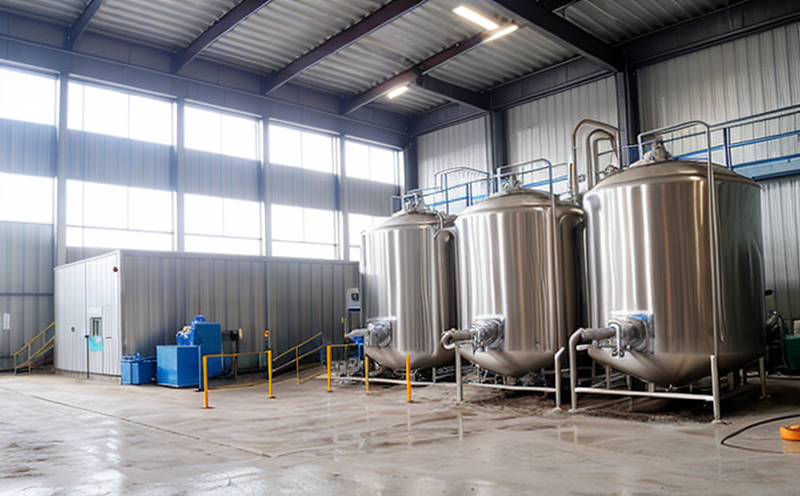ISO 17993 Volatile Organic Compounds Test in Industrial Water
The ISO 17993 standard provides a comprehensive framework to ensure that industrial processes are conducted safely and efficiently. This includes the monitoring of volatile organic compounds (VOCs) in industrial water, which can have significant impacts on process performance and worker health.
Industrial water is used extensively across various sectors such as manufacturing, chemical processing, and energy production. The presence of VOCs in this water can lead to operational inefficiencies, increased maintenance costs, and regulatory compliance issues. Thus, it becomes essential to identify and quantify these compounds using standardized methods like ISO 17993.
The test involves the use of gas chromatography coupled with mass spectrometry (GC-MS). This highly sensitive technique allows for precise detection and quantification of VOCs present in industrial water samples. Preparing a sample typically includes filtration, concentration, and derivatization steps to enhance the detection limit of specific compounds.
Once prepared, the sample is injected into the GC-MS instrument where it undergoes separation based on its volatility and polarity. The resulting data are then analyzed according to ISO 17993 guidelines to determine the presence and concentration levels of targeted VOCs.
This testing ensures that industrial processes are optimized for efficiency while minimizing environmental impact. By adhering to strict standards like ISO 17993, companies can ensure they meet both internal quality control requirements as well as external regulatory expectations.
- Benefits:
- Improved operational efficiency
- Precise quantification of VOCs
- Enhanced process reliability
- Reduction in maintenance costs
The accurate identification and quantification provided by this method help in making informed decisions regarding the use of industrial water. It also supports continuous improvement efforts aimed at reducing waste and improving overall sustainability.
Benefits
- Precision in identifying and quantifying VOCs
- Avoidance of process inefficiencies
- Reduction in maintenance costs due to minimized contamination
- Enhanced worker safety through better controlled environments
The accurate measurement provided by this testing ensures that industrial processes run smoothly, thereby enhancing overall productivity and reducing the risk of unplanned downtime. Furthermore, by adhering to rigorous standards like ISO 17993, businesses can demonstrate their commitment to maintaining high-quality standards in all aspects of their operations.
Quality and Reliability Assurance
The implementation of ISO 17993 in industrial water testing ensures that the results obtained are reliable and repeatable. This standard provides clear instructions for sample preparation, analysis methods, and data interpretation, which helps laboratories maintain consistent performance across multiple tests.
Regular audits conducted by independent third parties further reinforce confidence in the quality of services provided. These assessments ensure that all procedures comply with international best practices, thereby upholding the integrity of the testing process.
Customer Impact and Satisfaction
The accurate identification and quantification of VOCs through ISO 17993 not only benefits the immediate industrial water but also has broader implications for customer satisfaction. By providing reliable test results, we help our clients make informed decisions about their processes.
- Enhanced trust in the quality of service
- Prompt resolution of any issues identified during testing
- Support for continuous improvement initiatives
- Facilitation of regulatory compliance and safety measures
Ultimately, our goal is to ensure that every client receives high-quality results that contribute positively to their business goals. Through thorough analysis and adherence to strict standards, we strive to exceed expectations and build long-term relationships based on mutual success.





